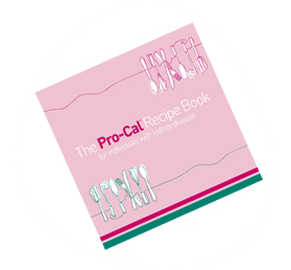Why is nutrition important for adults with kidney disease ?
Nutrition is important for those following a renal (kidney) specific diet due to the fact that the kidneys are not fully functioning. This means that a person is not able to get rid of enough waste products and fluids from the blood.
Dietary changes can help reduce the build-up of waste products and fluid, and it is very important that the requirements for protein, energy, fluids, vitamins, and minerals are met each day.
In order to manage this condition a person must make every effort to try and eat and drink the correct balance of foods and fluids to promote good health, help maintain weight and muscle stores, and ensure they have enough energy for day-to-day activities.
The renal diet can vary and needs to be individualised depending upon the condition, treatment, blood results, weight, medications and usual dietary intake (likes/dislikes).
What symptoms are associated with this condition that can cause reduced dietary intake?
People with kidney disease can often experience a reduced appetite and taste changes, which are associated with raised urea levels. These symptoms often result in a poor dietary intake and unintentional weight loss.
Fatigue, nausea/vomiting, large tablet burden, and constipation/ bloating are other symptoms and reasons why reduced dietary intake may become an issue with this group.
What is malnutrition and how can it affect adults with kidney disease?
Malnutrition (undernutrition) is a serious condition that occurs when a person’s diet does not contain enough nutrients. It is estimated that 30-40% of patients on haemodialysis are at risk of malnutrition. Malnutrition can increase the risk of illness or infection and complications of renal disease. It can have an effect upon functional ability, leading to reduced mobility and independence which, can significantly impact upon a person’s quality of life.
How to help prevent and /or manage malnutrition?
The following are some examples of ways to manage undernutrition/malnutrition in people following a renal diet:
- Food can be offered little and often if a person has a reduced appetite. 5-6 smaller snack type meals may be preferable to 3 larger meals throughout the day.
- Use full fat foods and full sugar options (if not diabetic) to help increase energy in the diet.
- Include high energy snacks and desserts regularly.
- It may be possible to relax some dietary restrictions; this should only be done under the supervision of a healthcare professional.
Top Tips to aid dietary intake:
- Batch cook or prepare several meals at once and portion into containers and freeze for times when appetite is poor or energy levels are low.
- Take time to plan meals for the week ahead and use recommended renal recipe books to help increase variety of meals/snacks.
- Add double cream or crème fraiche to porridge, cereals, sauces, mashed potato and milky puddings.
- Freeze oral nutritional supplements as ice cubes or ice lollies to help relieve a dry mouth.
- Aim to take oral nutritional supplements at the end of a meal or between meals. They can also be taken while on dialysis.
Ways to use Pro-Cal™ powder and/or Pro-Cal shot™ to increase nutritional intake?
- Sprinkle Pro-Cal powder into casseroles, stews or curries or alternatively, stir in Pro-Cal shot neutral flavour.
- Sprinkle Pro-Cal powder into mashed potato or whisk into egg to make scrambled egg.
- Add Pro-Cal shot neutral flavour to porridge oats with milk.
- Sprinkle Pro-Cal powder into custard or rice pudding.
This piece was written in conjunction with a specialist renal dietitian from the UK.
Pro-Cal shot and Pro-Cal powder are Foods for Special Medical Purposes and must be used under strict medical supervision. Suitable from 3 years of age onwards. Pro-Cal shot contains Milk (Milk Protein, Lactose) and Soya (Soya Lecithin). Pro-Cal powder contains Milk (Milk protein, lactose)





